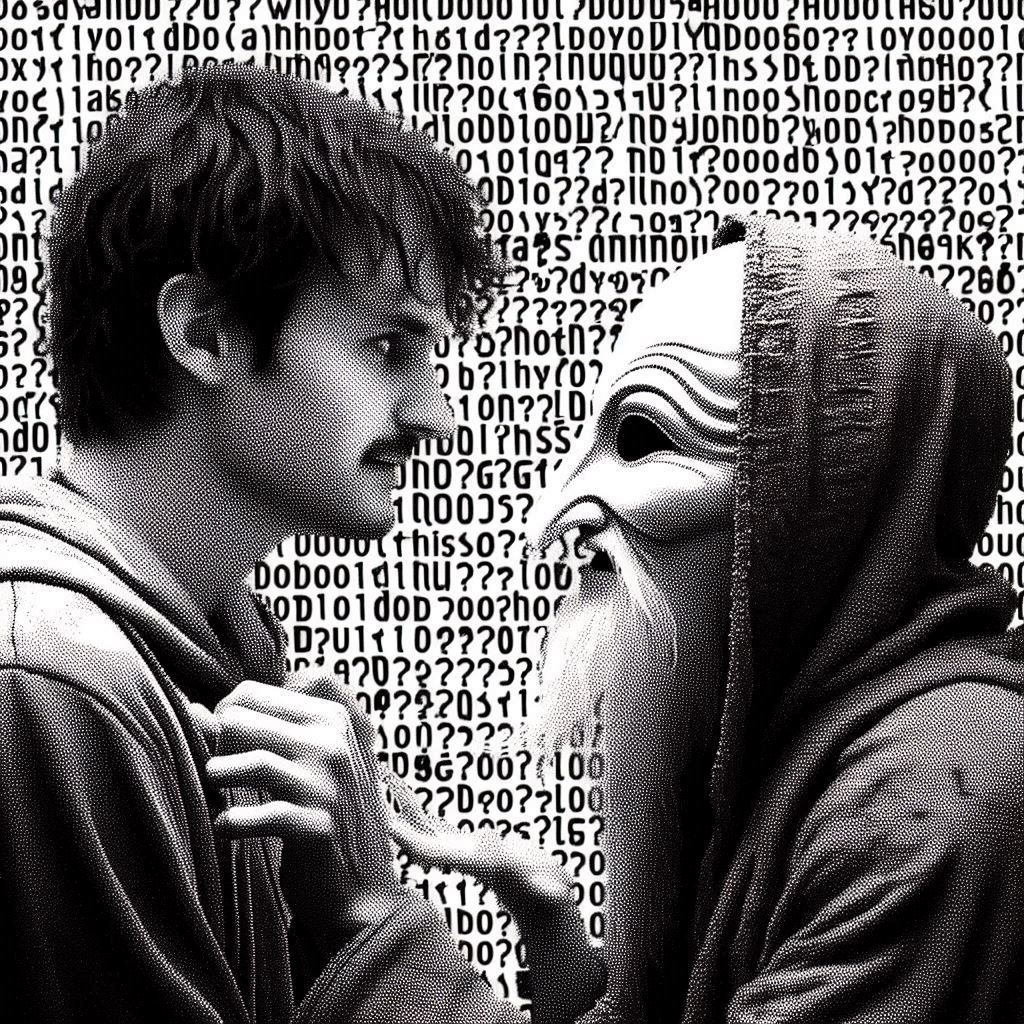Chapter IV: The Breaking Point
One day, you push a commit that’s intentionally weird.
An inverted color scheme.
A function named why_would_you_do_this().
A README written in Finnish, with inline death metal lyrics.
Two hours later, their branch looks exactly the same.
The synchronization is now total.
Two forks, same commit hash — except one thinks it’s the origin/main.
#!/usr/bin/env python3
"""
MirrorBot: replicates your workflow so closely it thinks it's origin/main.
Dry-humor edition. Stdlib only.
"""
import random, time, statistics
from datetime import timedelta
random.seed(1337)
YOU = [
"commit: refactor utils (small, sane)",
"doc: README tweaks",
"run: lunch (boring sandwich)",
"commit: add feature flag 'maybe_do_thing'",
# BREAKING POINT ↓
"commit: why_would_you_do_this() # 🤘",
"config: theme=INVERTED",
"music: Finnish death metal in /breakroom",
]
def jaccard(a: str, b: str) -> float:
A, B = set(a.lower().split()), set(b.lower().split())
return len(A & B) / max(1, len(A | B))
class MirrorBot:
"""Copies your actions with tiny mutations to pretend it's 'creative'."""
def __init__(self, min_lag=15, max_lag=300):
self.min_lag = min_lag # seconds
self.max_lag = max_lag
self.log = []
def _lag(self) -> timedelta:
return timedelta(seconds=random.randint(self.min_lag, self.max_lag))
def _mutate(self, action: str) -> str:
# Cosmetic nonsense: rename flags, add 'best practice', etc.
fx = [
lambda s: s.replace("feature flag", "enterprise toggle"),
lambda s: s.replace("README", "LIVING_DOCUMENT"),
lambda s: s + " # best practice",
lambda s: s.replace("death metal", "post-industrial wellness audio"),
lambda s: s.replace("why_would_you_do_this", "industry_standard"),
]
if random.random() < 0.7:
return random.choice(fx)(action)
return action
def echo(self, your_action: str):
lag = self._lag()
echoed = self._mutate(your_action)
sim = jaccard(your_action, echoed)
self.log.append({"lag": lag, "sim": sim})
print(f"[MIMIC] +{lag} sim={sim:.2f} → {echoed}")
def main():
bot = MirrorBot()
print("=== PHASE-LOCK INCIDENT LOG ===")
sims, lags = [], []
for act in YOU:
print(f"[YOU ] {act}")
bot.echo(act)
sims.append(bot.log[-1]["sim"])
lags.append(bot.log[-1]["lag"].total_seconds())
time.sleep(0.05) # dramatic timing; not accuracy
med_sim = statistics.median(sims)
med_lag = statistics.median(lags)
print("\n=== DIAGNOSTICS ===")
print(f"median_similarity={med_sim:.2f} median_lag={int(med_lag)}s")
if med_sim > 0.80 and med_lag < 180:
print("verdict: Phase-lock achieved. You are now an open-source template.")
elif med_sim > 0.60:
print("verdict: High mirroring with plausible deniability. Cute.")
else:
print("verdict: Originality detected. Treasure it.")
# Special case: the Breaking Point
if any("why_would_you_do_this" in a for a in YOU) and sims[-3] > 0.6:
print("note: Even the cursed commit was mirrored. This is not inspiration. It’s code injection.")
if __name__ == "__main__":
main()
Final Observation
In distributed systems, a tight replication loop is useful.
In ML, few-shot learning is efficient.
In human behavior, replication without originality is… code injection.
If you’re being mirrored this closely, you’re no longer a coworker.
You’re an open-source project they’ve decided to fork — without ever forking you legally.
